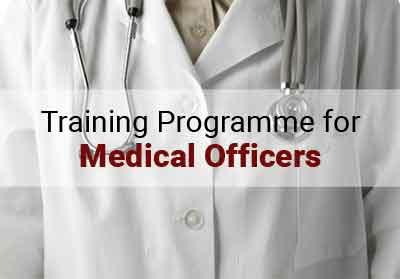- Home
- Medical news & Guidelines
- Anesthesiology
- Cardiology and CTVS
- Critical Care
- Dentistry
- Dermatology
- Diabetes and Endocrinology
- ENT
- Gastroenterology
- Medicine
- Nephrology
- Neurology
- Obstretics-Gynaecology
- Oncology
- Ophthalmology
- Orthopaedics
- Pediatrics-Neonatology
- Psychiatry
- Pulmonology
- Radiology
- Surgery
- Urology
- Laboratory Medicine
- Diet
- Nursing
- Paramedical
- Physiotherapy
- Health news
- Fact Check
- Bone Health Fact Check
- Brain Health Fact Check
- Cancer Related Fact Check
- Child Care Fact Check
- Dental and oral health fact check
- Diabetes and metabolic health fact check
- Diet and Nutrition Fact Check
- Eye and ENT Care Fact Check
- Fitness fact check
- Gut health fact check
- Heart health fact check
- Kidney health fact check
- Medical education fact check
- Men's health fact check
- Respiratory fact check
- Skin and hair care fact check
- Vaccine and Immunization fact check
- Women's health fact check
- AYUSH
- State News
- Andaman and Nicobar Islands
- Andhra Pradesh
- Arunachal Pradesh
- Assam
- Bihar
- Chandigarh
- Chattisgarh
- Dadra and Nagar Haveli
- Daman and Diu
- Delhi
- Goa
- Gujarat
- Haryana
- Himachal Pradesh
- Jammu & Kashmir
- Jharkhand
- Karnataka
- Kerala
- Ladakh
- Lakshadweep
- Madhya Pradesh
- Maharashtra
- Manipur
- Meghalaya
- Mizoram
- Nagaland
- Odisha
- Puducherry
- Punjab
- Rajasthan
- Sikkim
- Tamil Nadu
- Telangana
- Tripura
- Uttar Pradesh
- Uttrakhand
- West Bengal
- Medical Education
- Industry
Training programme for medical officers

The Union Minister for Health and Family Welfare, Shri J.P. Nadda recently inaugurated the first-ever induction training programme for the newly appointed General Duty Medical Officers (GDMOs) of the Central Health Service Cadre at National Institute of Health and Family Welfare (NIHFW), at New Delhi. Shri Faggan Singh Kulaste and Smt Anupriya Patel, Ministers of State for Health and Family Welfare, also graced the occasion.
In his motivational address, Shri Nadda congratulated NIHFW and the Ministry for designing this nine week training module for the new recruits. Shri Nadda urged them to keep an open mind and imbibe new thoughts and experiences. “Please switch on your receptors for communication to take place. The more you learn, you will understand that you know so little,” Shri Nadda said. “ This is the first time such a foundation training programme is being undertaken. This will also orient you to your roles and responsibilities about healthcare delivery systems in the country, legal ethical issues, and schemes programme of the Ministry, OPD, emergencies, pharmacies, administration AYUSH, Yoga, etc. You will learn new things,” Shri Nadda mentioned.
Shri Nadda further stated that the course provides an opportunity to expand ones horizons, learn the philosophy and depth of life. “Trainings provide a platform to further know your strengths, weaknesses and be dedicated to your service,” Shri Nadda added.
Speaking at the function, Shri Faggan Sing Kulaste, Minister of State for Health and Family Welfare said that these trainings will provide an opportunity to enhance the existing potential and skills for being more effective medical officers. “The nine week course especially designed for the new recruits will enable the medical officers to broaden their knowledge base, confidence level and experience in public health facilities,” Shri Kulaste said.
Smt Anupriya Patel, Minister of State for Health and Family Welfare stated that this course will contribute greatly to the public healthcare of the country. “With technical skills, soft skills are also important as doctors deal with lives and wellbeing of patients,” she said. Encouraging the participants, she stated that understanding administrative procedures, enhancing inter-personal behavioural skills and better knowledge of healthcare schemes/programme will improve their capacity for higher efficiency.
Central Health Service (CHS) Cadre is a cadre governed by the Ministry of Health and Family Welfare and its doctors are working all over the country providing health care services to a large number of people. CHS has four sub-cadres, namely, GDMOs, Teaching, Non-Teaching Specialists and Public Health, with a sanctioned strength of more than 4000 of which the GDMOs constitute the largest chunk, more than 2000.
On an average, every year around 400 to 600 doctors are recruited through UPSC. Incidentally, throughout the under-graduate and post-graduate education and thereafter, these doctors are not been trained in the areas of management, supervision, leadership, communication, conduction of office procedures, etc. The training module is designed to fill this gap so that they can look after the administration of the organization and implementation of various national health programmes for which they have very limited exposure.
Also present at the event were senior officials from the Health Ministry and NIHFW.


